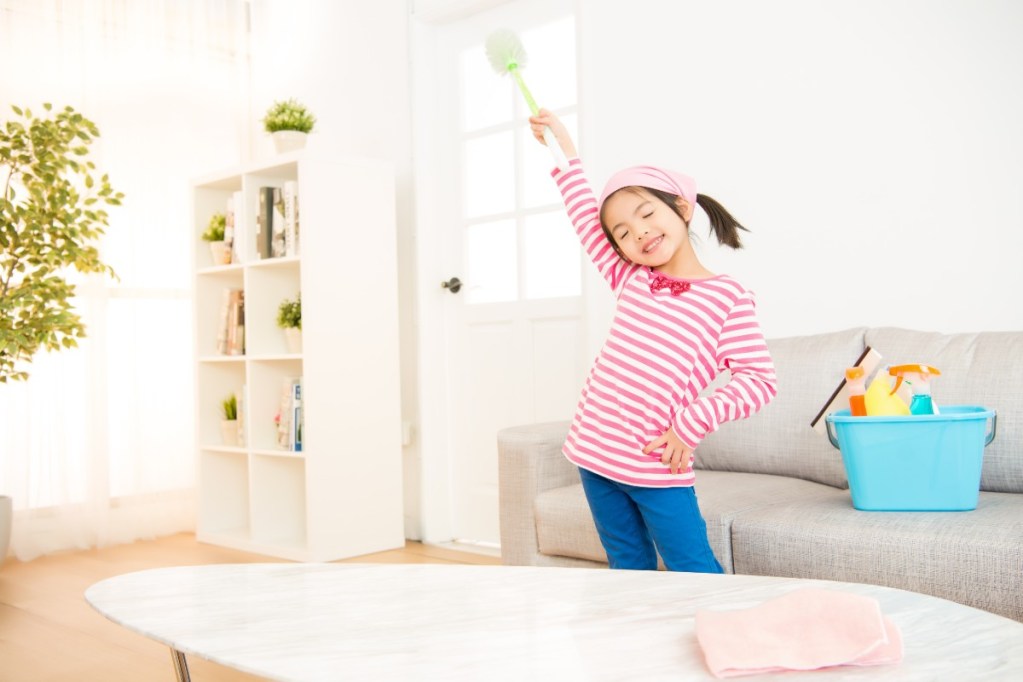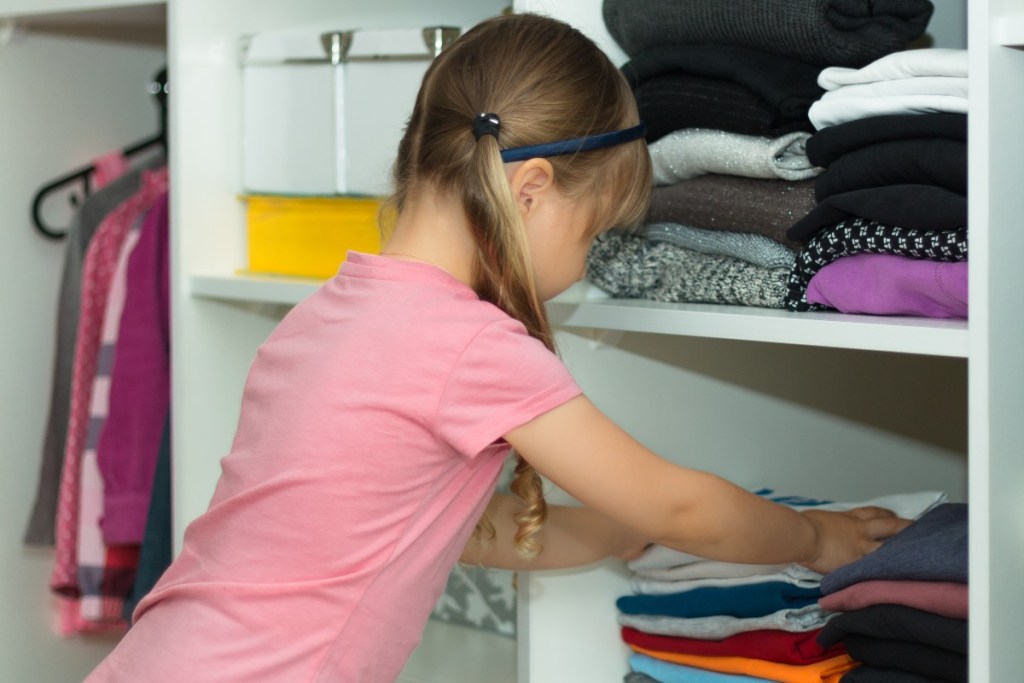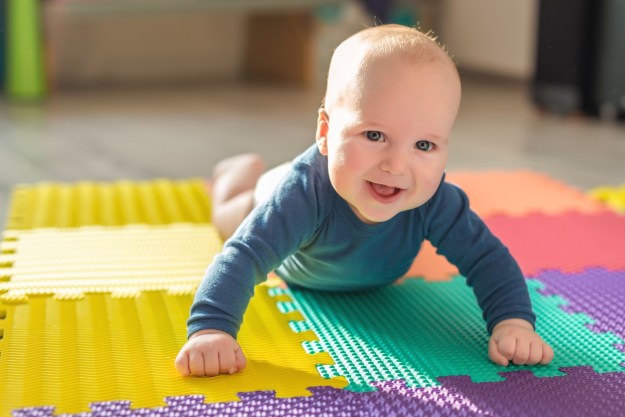There are two types of people in this world: those who love spring cleaning and those who absolutely dread it. Let’s face it, spring cleaning can be a daunting task because there’s so much to tackle. Not only do you need to do your regular, everyday cleaning, but when it comes to spring cleaning, you also want to do a deep clean, declutter, and organize everything in sight.
Quite honestly, it can be a lot for one or two people to take on. This is why it’s important to include all members of the family when it comes time to roll up your sleeves. Involving all members of the family in spring cleaning, including your children, means you can divide the work and get things done faster. You’ll also teach your kids a little something about responsibility and teamwork at the same time. Yes, those anti-cleaning cutie pies of yours should be an active part of this annual affair.
Ready to dust, mop, pile, and sort as a family? Here are a few tips for spring cleaning with kids.

Why kids should participate in spring cleaning
Kids are often more capable than we give them credit for. While it’s often easier to let them sit and watch us hard at work, parents should encourage them (okay, fine, force them) to help out with regular chores. They are active participants in the household and most likely contribute to the overall mess, so why shouldn’t they also be active participants in cleaning it up?
That truth bomb aside, spring cleaning can actually teach your kids some important life skills. Organizing is a huge part of your annual spruce-up, and it’s great for children to see how keeping things orderly and neat can help make things simpler and streamlined at home. What’s more, allowing them to take responsibility for their dirty laundry, clean clothes, toy storage, and bedrooms empowers them to be more responsible for their own belongings. As your children learn to take ownership and do a good job, they will feel begin to feel a sense of self-satisfaction, just like you do!

Kids’ spring cleaning tips and chores
Your kids may have a few household chores they’re responsible for already, but if they don’t, now’s the perfect time to assign them. There are plenty of kid-appropriate spring-cleaning activities that they can do themselves:
- Sorting clothes: ‘Tis the season to organize those closets. Put winter gear into storage and pile up any clothes they have outgrown. Make sure your child understands that these items can be donated to help someone in need. This will open up your child’s eyes to realize that their spring cleaning has a larger and more meaningful impact.
- Toy curation: Similarly, it’s time to pare down the junk. Make a goal to have your kids identify a certain number of toys to be donated. This can be hard for children, but again, they will feel good knowing they are contributing to their community.
- Organize books: Have your kids go through their vast library, wipe down shelves, dust off books, and organize them in a deliberate way. They can alphabetize books or create a rainbow display. Either way, it’ll keep them occupied, keep them cleaning, and keep them using their brains.
- Dusting, wiping, and vacuuming: Yes, your kids can actually clean, too. Just be aware of chemicals in certain cleaning products and take precautions. Make it fun by blasting the music, having a dance party, and getting the house to look sparkly together.
- Wash the car: This is one job your kids will definitely enjoy! On a warm day, have them put on bathing suits and give the cars a good wash. They’ll enjoy the soapy, sudsy fun task. But don’t stop there — also have them empty out any items that have been accumulating in your vehicle (jackets, toys, food wrappers, etc.). They’ve all got to go!

Should you incentivize your kids?
While the satisfaction of a hard day’s work should be reward enough, it might not cut it for your kiddos. What’s more, it is important to show them gratitude for their eager participation. Celebrate your efforts with a pizza party, ice cream date, movie night, or mini prize.
Sharing is caring even when it comes to chores. Spring cleaning should not be a one-person gig. You can come together as a family to knock every single task off that lengthy checklist in no time. Get your kids involved and they will take responsibility, feel empowered, and maybe even learn that messes don’t clean themselves. Everyone needs to do their part.
Editors' Recommendations
- When do babies start talking? Should you be concerned if yours isn’t?
- The feeling words all parents should teach their little ones
- How old do you have to be to fly alone? Read this before booking your kid’s trip
- 6 reasons why all parents should let their kids have cellphones
- Healthy extracurricular activities kids and teens should explore


